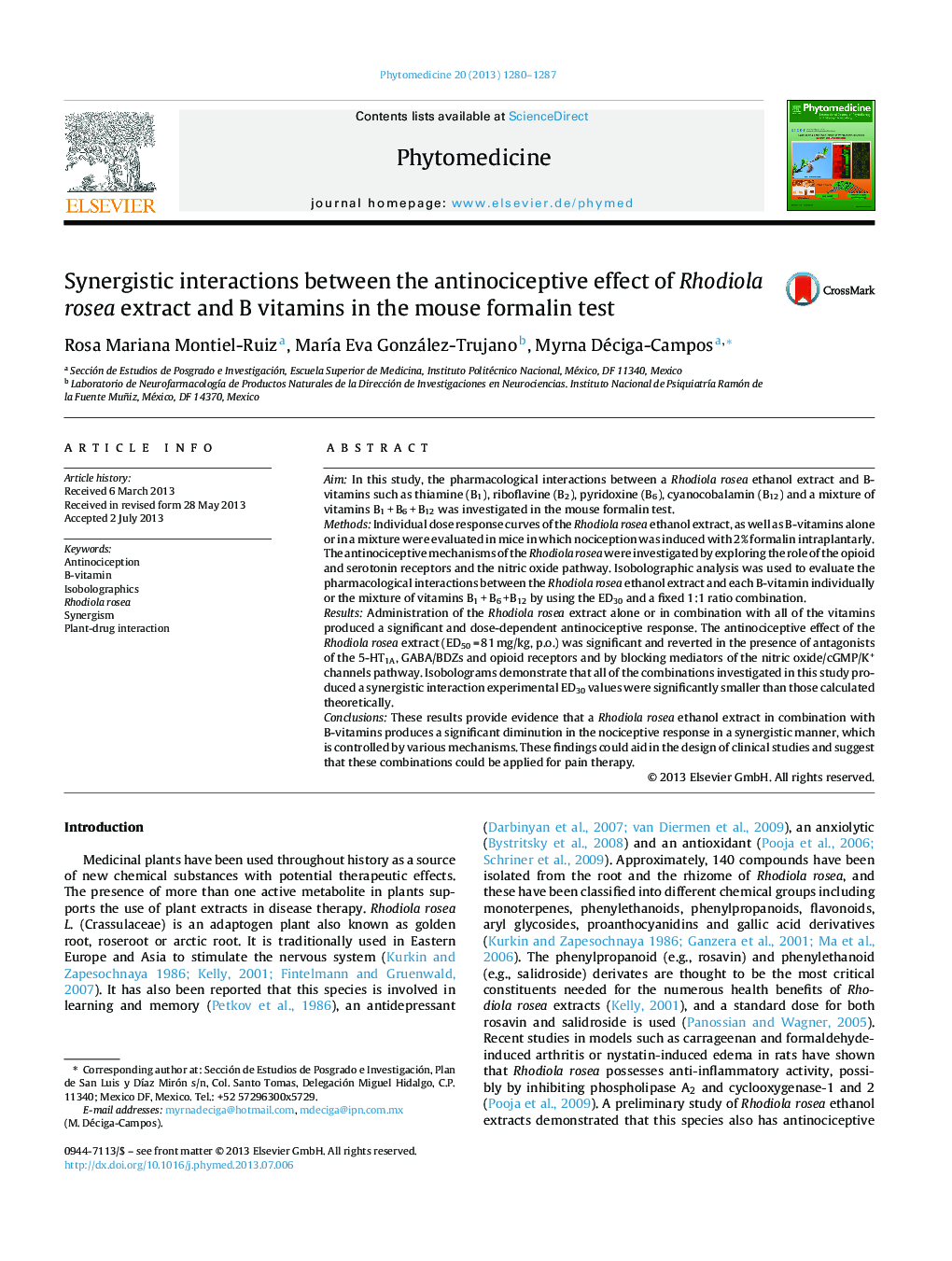| کد مقاله | کد نشریه | سال انتشار | مقاله انگلیسی | نسخه تمام متن |
|---|---|---|---|---|
| 2496642 | 1556698 | 2013 | 8 صفحه PDF | دانلود رایگان |

AimIn this study, the pharmacological interactions between a Rhodiola rosea ethanol extract and B-vitamins such as thiamine (B1), riboflavine (B2), pyridoxine (B6), cyanocobalamin (B12) and a mixture of vitamins B1 + B6 + B12 was investigated in the mouse formalin test.MethodsIndividual dose response curves of the Rhodiola rosea ethanol extract, as well as B-vitamins alone or in a mixture were evaluated in mice in which nociception was induced with 2% formalin intraplantarly. The antinociceptive mechanisms of the Rhodiola rosea were investigated by exploring the role of the opioid and serotonin receptors and the nitric oxide pathway. Isobolographic analysis was used to evaluate the pharmacological interactions between the Rhodiola rosea ethanol extract and each B-vitamin individually or the mixture of vitamins B1 + B6 +B12 by using the ED30 and a fixed 1:1 ratio combination.ResultsAdministration of the Rhodiola rosea extract alone or in combination with all of the vitamins produced a significant and dose-dependent antinociceptive response. The antinociceptive effect of the Rhodiola rosea extract (ED50 = 81 mg/kg, p.o.) was significant and reverted in the presence of antagonists of the 5-HT1A, GABA/BDZs and opioid receptors and by blocking mediators of the nitric oxide/cGMP/K+ channels pathway. Isobolograms demonstrate that all of the combinations investigated in this study produced a synergistic interaction experimental ED30 values were significantly smaller than those calculated theoretically.ConclusionsThese results provide evidence that a Rhodiola rosea ethanol extract in combination with B-vitamins produces a significant diminution in the nociceptive response in a synergistic manner, which is controlled by various mechanisms. These findings could aid in the design of clinical studies and suggest that these combinations could be applied for pain therapy.
Figure optionsDownload high-quality image (75 K)Download as PowerPoint slide
Journal: Phytomedicine - Volume 20, Issue 14, 15 November 2013, Pages 1280–1287